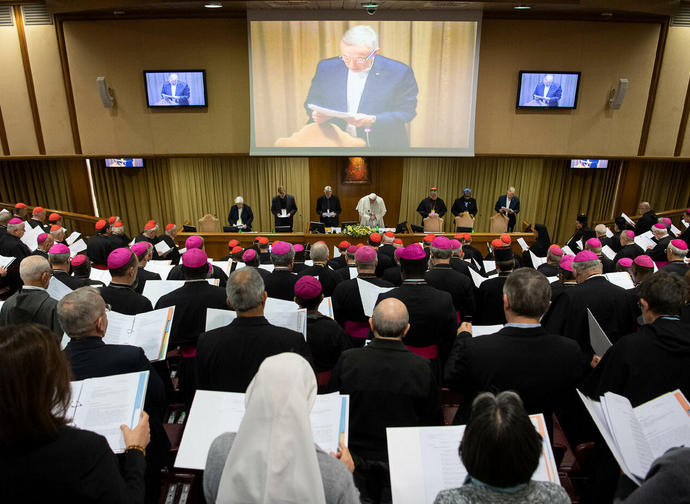Wanted: A Church of believers, not a believable Church
On the issue of sexual abuse we often hear that the Church’s credibility is at stake. But this expression is actually the most evident sign that a secularized way of thinking permeates the Church today. It denies that the Church is objectively credible because it is Christ’s will.
- ITALIAN ORIGINAL VERSION

In recent months, and especially in recent days, cardinals, bishops and various commentators have stated that the fight against sexual abuse has put the Church’s credibility on the line. That is to say, if the scourge of clerical child abuse continues, with all the various complicities and coverages, the Church would no longer have the right to propose itself to the world, it would not even have the authority to say something true and definitive on life and its destiny.
At first glance, it gives the idea that the issue of abuse is being dealt with seriously, but in reality, it is the most evident sign of a completely secularized way of thinking, because the credibility of the Church does not depend on the behavior of its members but on being the will of Christ. It is the divine element that makes the Church holy and therefore credible, not the human element. The credibility of the Church, its sanctity and its objectivity does not depend on the behavior of Catholics. Any lack of credibility, concerns only those individuals in the Church when they do not respond to the task that God entrusted to them.
The late Cardinal Giacomo Biffi said: "The Church must not be believable, it must believe." It is sad to note how many bishops and how many cardinals are more concerned with being convincing: so the hope of preventing or stopping child abuse is ultimately based on a series of measures, protocols and procedures and it is clear that psychologists become decisive in the formation of seminarians. That does not mean the human sciences do not have a contribution to make; but what is happening is that everything seems to be entrusted to human effort, to the ability of men to manage the Church that, like any other company in this world, needs to have a good reputation in order to succeed. We have become concerned with ethics - and in the end public image - rather than with salvation.
When necessary procedures need to be put in place, but first and foremost, we need to look at Christ who created us to be saints. We might also take advantage of the contribution of psychologists when required, but our primary concern should be to have saintly educators in seminaries.
Even if the sin of men in the Church makes them less credible and creates scandal, which makes it more difficult for people to meet and follow Christ, it does not put into question the Church’s credibility.
Two years ago, Cardinal Robert Sarah stated at a conference in Trieste: "Christian morality does not coincide with voluntarism, with a sense of duty, with pure solidarity; often laudable behaviours but which remain on a human level. For us Christians, morality starts from God, from his gift of holiness in us; He wants us Holy like His Father who is Holy: a splendid and gratuitous gift to which the Lord invites us to respond freely." And again: "In the doctrine and in the sacraments we continuously receive that objective holiness of the Church, that shared with us, becomes the subjective holiness of believers".
In other words: the sanctity, the credibility of the Church, is not the sum of holiness - or irreproachable behavior - of individual Christians. It is the opposite: it is the objective holiness of the Church that permits Christians to join in it personally. Cardinal Sarah continues: "Because despite our sins the Church always remains holy, we must strive, with God's help, not to ruin in us what is incorruptible. That is, we must guard our personal sanctity, to avoid that the objective sanctity of the Church, which is not touched by our shortcomings, is nevertheless called into question by those who, seeing our limits, are tempted to attribute them to the Church.”
It would have been appreciated if this perspective had emerged from the Vatican summit on sexual abuse, as it is the only one that can give us hope. We would like to think that at least some bishops raised this perspective in the debates, unfortunately the official communication contained only the fundamental reports, which are more worried about giving the political line.
But, if there are to be any real changes in the next few months and years, it will only be where there are pastors who are more worried about being believers rather than believable.
(Translation by Patricia Gooding-Williams)
